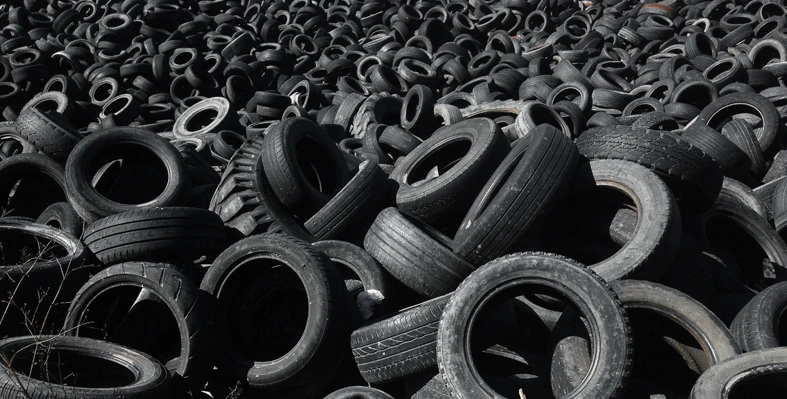The South African Tyre Manufacturers Conference (SATMC) has been appointed to the Waste Tyre Management Industry Advisory Committee to help support the Waste Tyre Management Plan that was approved by the cabinet in March this year
The national strategy seeks to address several challenges faced by the waste tyre sector, including limited local processing capacity, storage depot limitations, and logistical constraints. It is being driven by the Ministry of Forestry, Fisheries and the Environment, and emphasises collaboration between the public and private sectors while encouraging the participation of new SMMEs across the waste tyre value chain. It plans to progressively divert new waste tyres from storage while simultaneously processing larger portions of stockpiles to ultimately achieve 100% waste tyre coverage.
To attain this goal, Dion George, Minister of Forestry, Fisheries and the Environment, has recruited the help of the SATMC, announcing their appointment in July. Other committee representation includes the Retail Motor Industry (RMI); the Tyre, Equipment, Parts Association (TEPA); Tyre Recycling Industry Association of South Africa; the Recycling Association of South Africa and the Waste Tyre Management Forum, as well as the Black Business Council (BBC), Business Unity South Africa (BUSA); Minerals Council South Africa, the Department of Science and Innovation; and Department of Trade, Industry and Competition.
SATMC has now issued a statement welcoming their inclusion, with managing executive Nduduzo Chala commenting, “As the SATMC, we look forward to working closely with all committee representatives and the broader industry to drive forward the objectives of the Waste Tyre Management Plan, which include expanding waste tyre processing capacity, developing monitoring systems, and supporting municipal waste management initiatives. This crucial environmental initiative deserves the full support of the entire tyre industry value chain to reduce the negative environmental impacts of waste tyres.”
Chala further expressed enthusiasm for the establishment of three dedicated waste tyre management regions nationwide, each involving multiple organisations working together to meet this pressing environmental challenge. Region 1 covers the Northern Cape, Eastern Cape, Western Cape and southern Free State; Region 2 covers KwaZulu Natal, Mpumalanga and Limpopo; and Region 3 covers Gauteng, North-West Province and northern Free State.
Tyre repurposing
Bringing the SATMC on board brings its experience in actively identifying and leveraging opportunities for repurposing waste tyres. It is committed to ensuring that what is produced by tyre manufacturers is reused effectively.
“We are currently on a research and fact-finding mission to explore potential uses for waste tyre products. This is part of a broader strategy to integrate waste tyres into the economy sustainably. What we would like to see is for these waste products to be converted into usable material, for example, tyre crumb used in road infrastructure or waste tyres used in the construction of schools and other social projects,” remarked Chala.
Another crucial initiative is the tyre mutilation initiative, which ensures that dealers mutilate tyres correctly to prevent them from re-entering the market. The SATMC developed a standard for this process years ago, which included guidelines and posters for dealers to ensure compliance and awareness.
“Prior to the finalisation of the Plan, the SATMC had long been advocating for a process that would cater to the processing of end-of-life tyres. We continue working closely with TIASA, TEPA, the Waste Management Bureau, and the government to ensure that steps are taken to drive improvements and sustainability in both collection and processing of tyre waste,” Chala added.
Increased regulation
Chala also spotlighted the need for better regulation of part-worn or second-hand tyres which pose safety risks for road commuters and add to the burden of incorrect disposal of waste tyres.
“We urge the government to prioritise the regulation of second-hand tyres as part of its overall road safety strategy,” he surmised. “This will help to prevent the sale of unsafe tyres and protect the lives of South African motorists.”
Chala concluded by noting that the SATMC’s technical committee intends to conduct a new study to investigate the prevalence of illegal second-hand tyres in the market. Research in 2020 from the organisation suggested that 63% of tyres sampled were deemed illegal and current estimates suggest there now between 1mn and 1.5mn illegal tyres circulating in the country.













